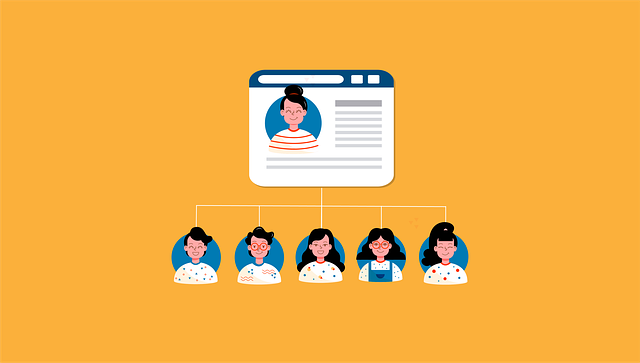Repeat customers are a goldmine for retailers and other businesses because they’re far more likely to spend higher amounts of money once they trust your company. They’re also a great source for word of mouth that can help you bring new faces through your doors.
whether you believe it or not, turning your past sales into loyal, repeat customers are much more valuable to your business than simply getting more one-time shoppers.

1. Be personalized
You already have a database of all your past customers who have opted into your marketing communications, so why just let those relationships go cold in the days, weeks, and months after a sale?
To get value out of a win-back campaign, customers need to also feel like they aren’t just receiving an automated email. Making it feel personalized will reinforce the sense of community that they will want to keep being part of. One great way to make that happen is by including product recommendations in the emails, especially those sharing similar feathers with what they bought before. Even if they aren’t tailored to the individual or not so targeted, they can appear to be and reinforce that personalized feeling.
2. Loyalty-building program
While there are lots of ways to engage with your customers after acquiring them, the engagement itself shouldn’t be the end goal. Moving customers from acquisition through engagement and ultimately retaining them is the only way to put your hard-earned marketing efforts to work for you to enable long-term success. Loyalty programs help keep your brand top of mind for consumers, which is one of the best ways you can reward your VIP customers and win them back.
It may reduce your profit to carry a loyalty program. But compared with the money you’d have to spend to acquire just one new customer, offering customers a 10% discount toward future sales is profitable in the long run.
After a customer makes a purchase, you could send a follow-up email offering 10% off his next order, good for 30 days. Or offer $10 off a $40 purchase. Get creative. You could also include a discount code with each product that you ship.

3. Remarketing
Re-targeting is where ads are displayed around the web to people who have already engaged with your website or are part of your contact database (as a lead, subscriber or existing customer).
Using display ad retargeting, you can re-capture attention by ”upselling or down selling” across the marketing funnel and re-engage your audience across the web. This helps you to generate attention and leads by addressing relevant challenges to each stage of the customer journey and helps to reinforce brand messaging.
To do retargeting, you can add a piece of JavaScript to your website. This script captures the details of those who visit your site by placing a cookie in their browser. Through cookie matching, users are added to an audience that is available for re-targeting for up to 180 days.
Users are then served relevant ads as they browse across the web and on social media.
4. Meet their self-service expectations
Customers’ increasing demands for self-service have pushed companies to improvise their websites to meet customers’ expectations. According to a survey, 70% of website users now expect a company’s website to include a self-service application. This supports the most recent finding that buyers are now using the self-service FAQ pages on a company’s website just as often as speaking with an agent on the phone.
Self-service expectations are high. By creating an effective FAQ, you are delivering an excellent service. But that’s not all. An effective FAQ can also help you increase sales, reduce incoming calls and help you build trust.
Your FAQs need to cover common questions for everyone, but each visitor must be able to easily find their specific concerns. If there are a lot of questions, then group them by topic or theme.
An effective FAQ should be written exactly as you would expect to hear questions and answers in real life between a prospect and a member of your sales team. First, think carefully about the demographic you are targeting. Your prospects should be able to hear the questions in their own head as they read them. So instead of the standard ‘Welcome’ message at the top of the page, you can use “Hi. How can we help?”
5. Over-delivering is worthwhile.
The opportunities to inspire and surprise customers are endless! Find out what the consumer wants and then over-deliver on their expectations.
Accepting a return you might not normally take, shipping out a package earlier than expected, and providing information before it’s asked for are all great ways to over-deliver.

Moving customers from acquisition through engagement and ultimately retaining them is the only way to put your hard-earned marketing efforts to work for you to enable long-term success. Follow the strategies, and you’ll be well on your way to turning all your past sales into repeat customers that not only purchase from you, but love being part of your brand community while they’re at it.






